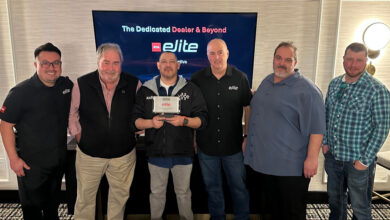Amnesty International: Bad Ethics and Environmental Risks Taint EV Batteries
Amnesty International has questioned the ethics behind electric vehicle battery production, alleging violations against human rights and the environment. The group this week has publicly challenged the electric vehicle industry to make the world’s first completely ethical battery within the next five years.
At the March 21-22 Nordic Electric Vehicle (EV) Summit in Oslo, Norway, the organization highlighted how lithium-ion batteries, which power electric cars and electronics, are linked to human rights abuses including child labor in the Democratic Republic of Congo (DRC), and environmental risks, which could undermine their green potential, according to the advocacy group.
“Without radical changes, the batteries which power green vehicles will continue to be tainted by human rights abuses,” said Kumi Naidoo, Amnesty International’s secretary general. “Finding effective solutions to the climate crisis is an absolute imperative, and electric cars have an important role to play in this. But without radical changes, the batteries which power green vehicles will continue to be tainted by human rights abuses.
“The massive global corporations that dominate the electric vehicle industry have the resources and expertise to create energy solutions that are truly clean and fair, and we are challenging them to come back to Oslo next year with proof of real progress,” Naidoo added. “With demand for batteries soaring, now is the time for a drastic overhaul of our energy sources that prioritizes protection of human rights and the environment.”
Human Rights & Mineral Extraction
Years of unregulated battery industry practices have led to detrimental human rights and environmental impacts, which governments and industry are not doing enough to tackle, according to Amnesty International.
The group has documented human rights violations linked to the extraction of the minerals used in lithium-ion batteries, particularly in the DRC. A 2016 investigation found children and adults in southern DRC working in hand-dug cobalt mines facing serious health risks, neither protected by the government nor respected by companies that profit from their labor. Amnesty International’s research has linked these mines to the supply chains of many of the world’s leading electronics brands and electric vehicle companies, according to the group.
Despite projections that the demand for cobalt will reach 200,0000 tons per year by 2020, no country legally requires companies to publicly report on their cobalt supply chains. With more than half of the world’s cobalt originating in southern DRC, the chance that the batteries powering electric vehicles are tainted with child labor and other abuses is high, according to Amnesty International.
There has been some progress since 2016. Several leading companies, including Apple, BMW, Daimler, Renault, and the battery manufacturer Samsung SDI, have published data about their supply chains.
Amnesty International has also begun documenting violations of the human rights of Indigenous peoples living near lithium mines in Argentina.
Environmental Concerns
Most of the current manufacturing of lithium-ion batteries is concentrated in China, South Korea and Japan, where electricity generation remains dependent on coal and other polluting sources of power, according to Amnesty International.
Meanwhile, rising demand for minerals like cobalt, manganese and lithium has led to a surge in interest in deep-sea mining, which some studies predict will have serious and irreversible impacts on biodiversity, according to Amnesty International.
“Every stage of the battery lifecycle, from mineral extraction to disposal, carries human rights and environmental risks,” Naidoo said. “We need to change course now, or those least responsible for climate change-indigenous communities and children – will pay the price for the shift away from fossil fuels. The energy solutions of the future must not be based on the injustices of the past.”
Seeking Change
The Nordic EV Summit has given Amnesty International a platform to outline its vision for an ethical battery that does not harm human rights or the environment at any stage of its lifecycle. The organization is calling for action by government, industry, innovators, investors and consumers to create an ethical and sustainable battery, which can be used for electric vehicles and in the electronic industry, within five years.
Amnesty International’s work will focus on all three phases of the battery lifecycle:
- Extraction-Mapping supply chains of key minerals, calling for human rights impacts to be identified, prevented and addressed, and calling for a prohibition on commercial deep-sea mining
- Manufacturing-Requesting that carbon footprints to be properly disclosed, minimized, and offset; and for rights to and at work, including health, equality and non-discrimination, to be legally protected and enforced
- Re-use and recovery-Calling for products to be designed and regulated so that their potential for re-use is optimized and waste is penalized; and illegal or dangerous exportation and dumping of batteries is prevented.
“Companies who overlook human rights concerns as they clean up their energy sources are presenting their customers with a false choice: people or planet,” Naidoo said. “This approach is gravely flawed.”



